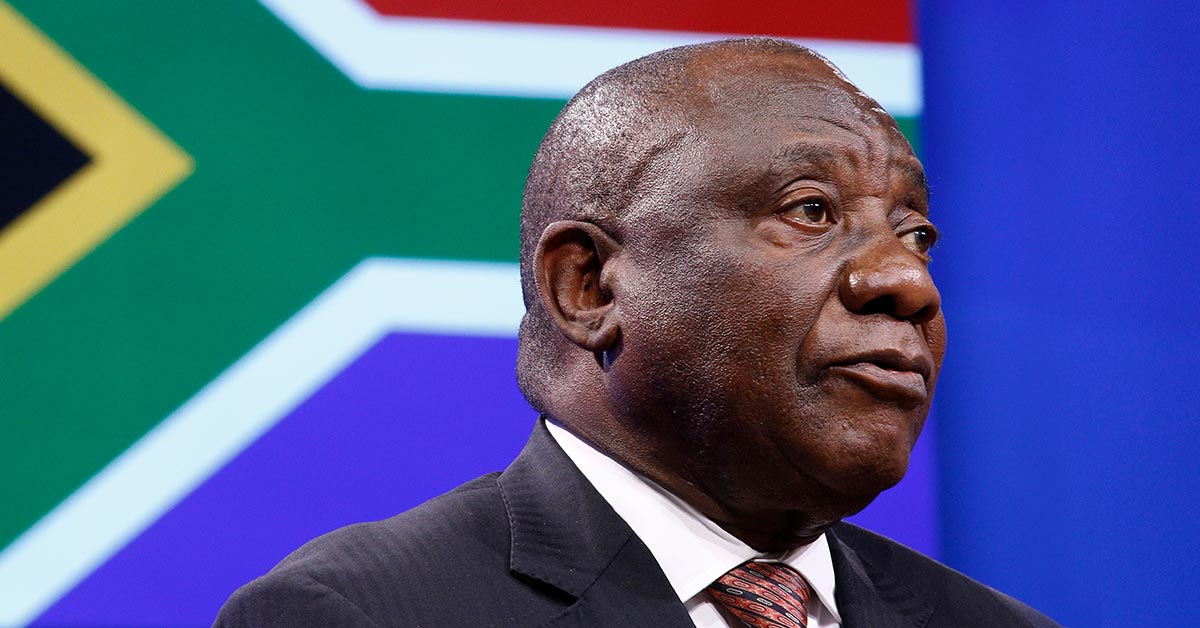Ramaphosa talks toxic masculinity and violence against queer men

President Cyril Ramaphosa says that queer men are also victims of toxic masculinity (Photo: Alexandros Michailidis / Shutterstock.com)
South Africa’s President, Cyril Ramaphosa, confronted the pressing issue of toxic masculinity and its adverse effects on women and queer men during his recent address at the Presidential Young Men and Boys Indaba in Soweto on August 29.
The event, attended by the Minister of Basic Education, Angie Motshekga, and the Premier of Gauteng, Panyaza Lesufi, aimed to shed light on the challenges faced by young men in the country and the scourge of gender-based violence in society.
President Ramaphosa passionately stated, “There is a crisis in our society. A terrible crisis that will destroy us if we do not overcome it.
“That crisis is violence against women and girls; violence that men perpetrate. Because it is men who are responsible for this scourge, men need to be part of bringing it to an end.”
Ramaphosa emphasised the need for an open dialogue about “patriarchal attitudes and practices”. He urged society to challenge toxic masculinity, which he defined as the belief that being a man entails dominating and demeaning women.
Highlighting the struggles of queer men
While acknowledging that women bear the brunt of violence within the LGBTQ+ community, Ramaphosa also recognised the harsh realities faced by queer boys and men, who continue to encounter discrimination, stigma, and violence due to their sexual orientation or expression.
“We must talk about sexuality in general; about stigma, bullying and even violence against gay or gender non-conforming young men. This is a problem in many of our communities,” asserted Ramaphosa.
“We want to create more safe and open spaces where you can talk about your feelings, share with each other and collaborate on strategies that help you advance through different stages of your lives,” he continued.
A call to reimagine masculinities
The President called for a move to “reimagine and reinvent masculinities in sensitive, kind, respectful, accountable, expressive and nurturing ways.”
While Ramaphosa has previously spoken out against homophobic discrimination, violence and hate crimes, his administration has faced criticism for not taking sufficient concrete steps to address these issues.
The National Task Team (NTT) on Violence against LGBTI Persons, for example, has remained dysfunctional and largely ineffective due to a lack of resources and limited interest from government officials.
Moreover, Ramaphosa and his government have remained conspicuously silent on anti-LGBTQ+ human rights abuses and draconian legislation in other African countries, like Uganda, and BRICS partner nations, such as Russia and China.
as much as we can agree on such passionated speech over GBV and toxic masculinity within Africans societies especially in South Africa, much still needs to be done. A call to reimagine masculinities is necessary but again we need to reeducate ourselves along with deconstructing genders spectrum, healing and restoration through thorough research and adequate implementation of tools that will help our societies understand and appretiate the nature of human kind . We the people, we humans, we as Africans this including all classes of our societies. Let’s do the work together.